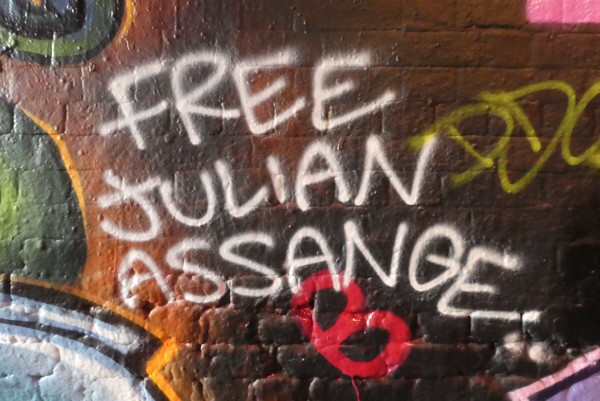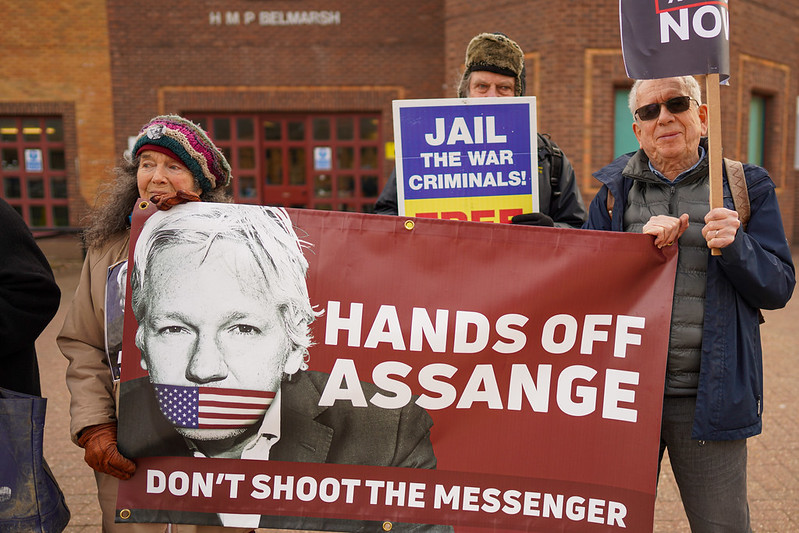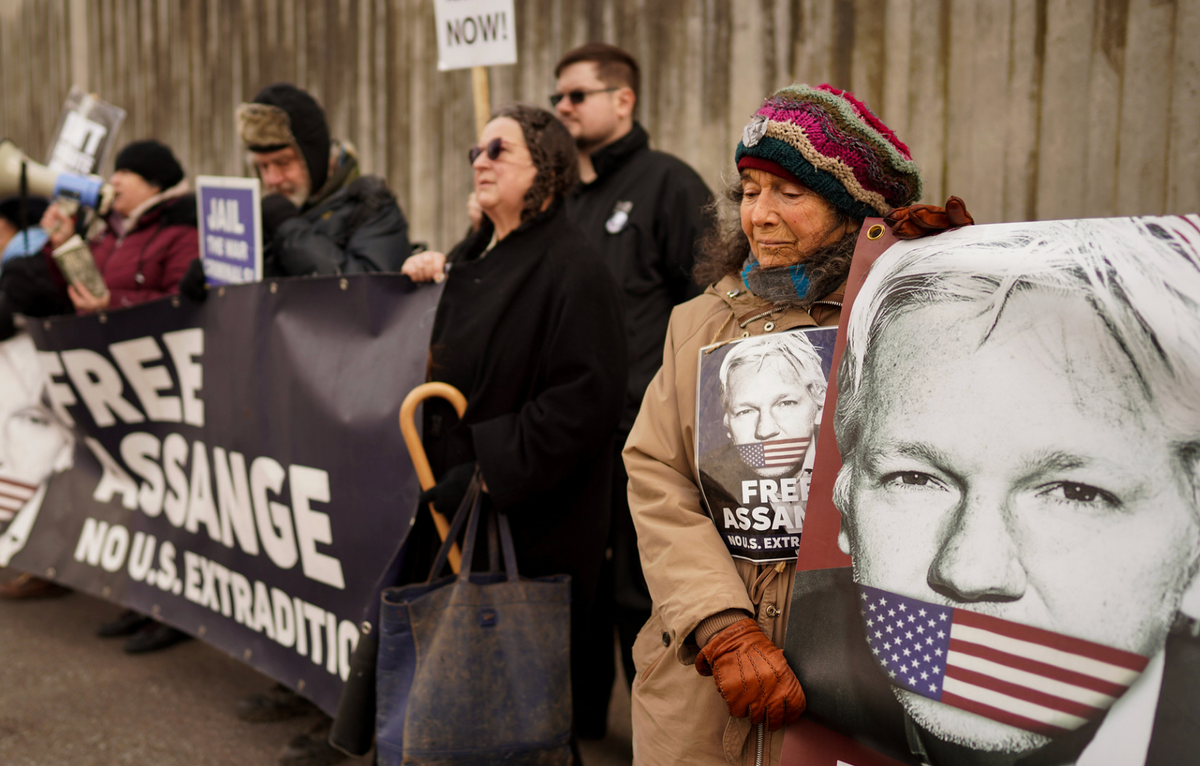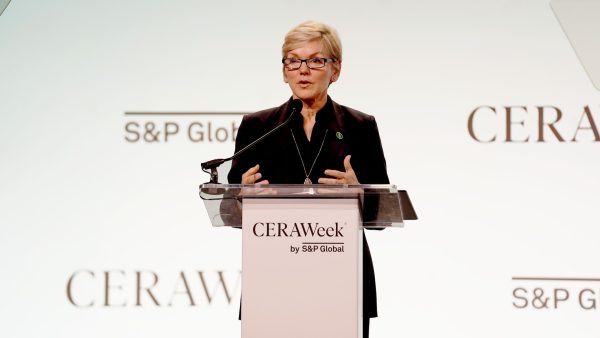In this interview, filmmaker and academic Ariella Aïsha Azoulay traces how Western powers’ exploitation of Zionism led not just to the ethnic cleansing of Palestine but to the demise of Jewish communities across the Middle East.
April 12, 2024
Source: Jacobin

Jews in the town of Buqei’a, Palestine, circa 1930.

Jews in the town of Buqei’a, Palestine, circa 1930.
(Keren Kayemet Leyisrael via Wikimedia Commons)
Born in Israel, Ariella Aïsha Azoulay, a filmmaker, curator, and academic, rejects the identity of Israeli. Before becoming an Israeli at age nineteen, her mother was simply a Palestinian Jew. For much of history, there was nothing unusual in this combination of words. In Palestine, a Jewish minority lived peacefully alongside the Muslim majority for centuries.
This changed with the Zionist movement and the foundation of Israel. The ethnic cleansing of Jews from Europe would lead, thanks to European Zionists, not only to that of Muslims from Palestine but of Jews from the rest of the Middle East, with nearly a million fleeing as a result of the 1948 Arab-Israeli War, many to Israel.
In an interview with Jacobin, Azoulay contextualizes Israel’s genocide in Gaza in the long history of European and US imperialism. Azoulay is a professor of comparative literature at Brown and the author of Potential History: Unlearning Imperialism (Verso, 2019).
Linda Xheza
You identify as a Palestinian Jew. Could you tell us more about this? To many people these words stand in opposition.
Ariella Aïsha Azoulay
That these terms are understood as mutually exclusive, or in opposition, as you suggest, is a symptom of two centuries of violence. In a lapse of a few generations, diverse Jews who lived all over the world have been deprived of their various attachments to land, languages, communities, occupations, and forms of sharing the world.
The question that should preoccupy us is not how to make sense of the supposed impossibility of Palestinian-Jewish identity but rather the reverse: How it is that the fabricated identity known as Israeli became recognized by many across the globe after the creation of the state in 1948 as an ordinary one? Not only does this identity obscure the history and memory of diverse communities and forms of Jewish life, but it also obscures the history and memory of what Europe did to the Jews in Europe and in Africa and Asia in its colonial projects.
Israel has a shared interest with those imperial powers to obscure the fact that “the state of Israel was not created for the salvation of the Jews; it was created for the salvation of the Western interests,” as James Baldwin wrote in 1979 in his “Open Letter to the Born Again.” In his letter, Baldwin lucidly compares the Euro-American colonial project for the Jews with the US project for blacks in Liberia: “The white Americans responsible for sending black slaves to Liberia (where they are still slaving for the Firestone Rubber Plantation) did not do this to set them free. They despised them, and they wanted to get rid of them.”
Prior to the proclamation of the State of Israel and its immediate recognition by the imperial powers, Palestinian-Jewish identity was one of many that existed in Palestine. The term “Palestinian” was not yet connotated with racialized meaning. My maternal ancestors, who were expelled from Spain in the late fifteenth century, ended up in Palestine before the Euro-Zionist movement began its actions there and before the movement gradually began conflating assisting Jews in response to antisemitic attacks in Europe with the imposition of a European-modeled project of colonization for Jews to partake in — a project not only construed as one of Jewish liberation but predicated upon European crusade against Arabs. Decolonization requires recovering the plural identities that once existed in Palestine and other places in the Ottoman Empire, notably ones whereby Jews and Muslims coexisted.
Linda Xheza
In your most recent film, The World Like a Jewel in the Hand, you discuss the destruction of a shared Muslim-Jewish world. You foreground a call by Jews who, in the late 1940s, rejected the European Zionist campaign and urged their fellow Jews to resist the destruction of Palestine. Given the recent destruction of lives, infrastructure, and monuments in Gaza, do you think it is still possible for Jews and Muslims to reclaim their shared world?
Ariella Aïsha Azoulay
First, the historical part. Zionists have sought to forever erase this call by anti-Zionist Jews from our memories. These Jewish elders were part of a Jewish-Muslim world, and they didn’t want to depart from it. They warned against the danger Zionism posed to Jews like them across this world that existed between North Africa and the Middle East, including in Palestine.
We must recall that until the end of World War II, Zionism was a marginal and unimportant movement among Jewish peoples around the world. Hence, until that time, our elders didn’t even have to oppose Zionism; they could simply ignore it. It was only after World War II, when the surviving Jews in Europe — who were mostly not Zionists prior to the war — had almost nowhere to go, that Euro-American imperial powers seized the opportunity to support the Zionist project. For them, it was a viable alternative to having Jews remain in Europe or migrate to the United States, and they used the international organs they created to accelerate its realization.
In so doing, they propagated the lie that their actions constituted a Jewish liberation project, while, in actuality, this project perpetuated the eradication of diverse Jewish communities far beyond Europe. And even worse, Jewish liberation was leveraged as a license and reason to destroy Palestine. This could not have been pursued without a growing number of Jews becoming Europe’s mercenaries: Jews who had migrated to Palestine while fleeing from or after surviving genocide in Europe, the Palestinian Jews who predated the arrival of the Zionists, and those Jews who were lured to come to Palestine or left with no other choice but to depart from the Muslim-Jewish world since Israel was established, with a clear agenda, to be an anti-Muslim and anti-Arab state — all were encouraged by Europe and European Zionists to see Arabs and Muslims as their enemies.
We should not forget that Muslims and Arabs were never the enemies of the Jews and, moreover, that many of these Jews living in the majority-Muslim world were themselves Arabs. It is only with the creation of the State of Israel that these two categories — Jews and Arabs — became mutually exclusive.
The destruction of this Jewish-Muslim world following World War II enabled the invention of a Judeo-Christian tradition, which would become, from that moment on, a reality, since Jews no longer lived outside of the Christian Western world. The survival of a Jewish regime in Israel required more settlers, and thus Jews of the Muslim-Jewish world were forced to leave to become part of this ethnostate. Detached and deprived of their rich and diverse histories, they could be socialized to this role assigned to them by Europe — mercenaries of this settler-colonial regime to restore Western power in the Middle East.
Understanding this historical context doesn’t reduce the Zionist perpetrators’ responsibility for the crimes they committed against Palestinians over the decades; rather, it reminds one of Europe’s role in the destruction and extermination of Jewish communities mainly, but not only, in Europe, and its role in handing over Palestine to the Zionists, the alleged representatives of the survivors of this genocide who formed a Western post for these same European actors in the Middle East.
Paradoxically, the only place in the world where Jews and Arabs — most of whom are Muslims — share the same piece of land today is between the river and the sea. But since 1948, this place has been defined by genocidal violence. The urgent questions now are how to stop the genocide and how to halt the introduction of more arms to this area.
In Eichmann in Jerusalem, Hannah Arendt describes the contradictory sentiments felt by Jewish survivors of the Holocaust during the years they spent in camps for displaced persons in Europe. On the one hand, she said, the last thing they could imagine was to live once again with the perpetrators; on the other hand, she said, the thing they wanted most was to return to their places. It should not surprise us that after this genocide in Gaza, Palestinians may not be able to imagine sharing a world with their perpetrators, the Israelis. However, is that a proof that this world, where Arabs and Zionist Jews found themselves together, should also be destroyed to rebuild Palestine out of the ashes? It is only under the Euro-American imperial political imagination that a tragedy on the scale of World War II and the Holocaust could have ended with such brutal solutions as partitions, population transfers, ethno-independence, and the destruction of worlds.
We, on a global scale, have an obligation to claim what I’ve called the right not to be a perpetrator and exercise it in any possible way. Dockworkers who refuse to ship arms to Israel, students who commit themselves to hunger strikes to pressure their universities to divest, Jews who disrupt with their communities and families and reclaim their ancestral rights to be and speak as anti-Zionists, protesters who occupy state buildings and train stations and risk being arrested — they are all motivated by this right even if they do not articulate it in these terms. They understand the role their governments, and more broadly the regimes under which they are governed as citizens, play in the perpetuation of this genocide, and they understand, as the common slogan says, that it is done in their name.
Linda Xheza
Those calling for a cease-fire are also Jewish. But even Jewish voices are being silenced. In Germany, for example, the work of well-established Jewish artists has been canceled. Do you think there is an interest in reinforcing a dominant narrative that has been in place since 1948 by the West and the State of Israel while suppressing Jewish voices that oppose the violence perpetrated in their name?
Ariella Aïsha Azoulay
It is true that Jewish voices are being silenced, but this is hardly anything new. Jewish voices were silenced immediately after World War II, when the survivors were left with no choice but to stay for years in deracinated camps. During that time, properties looted from their communities, rather than being either restituted to the places in Europe from where they were spoiled, were split by the National Library in Jerusalem and the Library of Congress in Washington like trophies. And not only was the collective trauma of the survivors — and us, their descendants — not attended to, we were silenced through this lie of a liberation project premised on a Zionist narrative of liberation through the colonization of Palestine, which would in turn provide Euro-American powers with another colony to service their imperial interests.
The exceptionalization of the suffering of the Jews was not a Jewish discursive project but a Western one, part of the exceptionalization of the genocidal violence of the Nazis. In the grand narrative of Western triumph over this ultimate force of evil, the State of Israel became an emblem of Western fortitude and marked the endurance of the Euro-American imperial project. Within this grand narrative, Jews were forced to transform from traumatized survivors into perpetrators. Jews from all over the world were sent to win a demographic battle, without which the Israeli regime could not last. The second and third generations born to this project were born with no histories or memories of their anti-Zionist or non-Zionist ancestors, let alone memories of the other worlds of which their ancestors were part. What’s more, they were totally dissociated from the history of what Palestine used to be and from its destruction. Thus, they were easy prey for a nation-state marketed by the Zionists and Euro-American powers as the culmination of Jewish liberation.
The Nakba, in this sense, was not only a genocidal campaign against Palestinians but also, at the same time, one against Jews, upon whom Europe forced another “solution” after the final one. Without the massive imperial powers’ funding and arms, the mass killing in Gaza would have ceased after a short while, and the Israelis would have to ask themselves what they were doing, how they arrived to this point, and would be forced to reckon with October 7 and ask themselves why it happened and how to achieve a sustainable life for everyone between the river and the sea.
Jewish voices in places like Germany or France continue to be the first to be silenced in order to maintain both the Zionist colony and the fabricated cohesiveness of one Jewish people who could be represented by forces that sustain the Euro-American project of white supremacy. No more. The genocidal nature of the Israeli regime is exposed and can no longer be hidden from anyone.
Linda Xheza
Do you think there is still a possibility of hope for the Palestinians, and for the rest of us who want to claim a world to share with others?
Ariella Aïsha Azoulay
If there is no hope for Palestinians, there is no hope for any of us. The battle of Palestine exceeds Palestine, and the many who protest all around the world know it.
Born in Israel, Ariella Aïsha Azoulay, a filmmaker, curator, and academic, rejects the identity of Israeli. Before becoming an Israeli at age nineteen, her mother was simply a Palestinian Jew. For much of history, there was nothing unusual in this combination of words. In Palestine, a Jewish minority lived peacefully alongside the Muslim majority for centuries.
This changed with the Zionist movement and the foundation of Israel. The ethnic cleansing of Jews from Europe would lead, thanks to European Zionists, not only to that of Muslims from Palestine but of Jews from the rest of the Middle East, with nearly a million fleeing as a result of the 1948 Arab-Israeli War, many to Israel.
In an interview with Jacobin, Azoulay contextualizes Israel’s genocide in Gaza in the long history of European and US imperialism. Azoulay is a professor of comparative literature at Brown and the author of Potential History: Unlearning Imperialism (Verso, 2019).
Linda Xheza
You identify as a Palestinian Jew. Could you tell us more about this? To many people these words stand in opposition.
Ariella Aïsha Azoulay
That these terms are understood as mutually exclusive, or in opposition, as you suggest, is a symptom of two centuries of violence. In a lapse of a few generations, diverse Jews who lived all over the world have been deprived of their various attachments to land, languages, communities, occupations, and forms of sharing the world.
The question that should preoccupy us is not how to make sense of the supposed impossibility of Palestinian-Jewish identity but rather the reverse: How it is that the fabricated identity known as Israeli became recognized by many across the globe after the creation of the state in 1948 as an ordinary one? Not only does this identity obscure the history and memory of diverse communities and forms of Jewish life, but it also obscures the history and memory of what Europe did to the Jews in Europe and in Africa and Asia in its colonial projects.
Israel has a shared interest with those imperial powers to obscure the fact that “the state of Israel was not created for the salvation of the Jews; it was created for the salvation of the Western interests,” as James Baldwin wrote in 1979 in his “Open Letter to the Born Again.” In his letter, Baldwin lucidly compares the Euro-American colonial project for the Jews with the US project for blacks in Liberia: “The white Americans responsible for sending black slaves to Liberia (where they are still slaving for the Firestone Rubber Plantation) did not do this to set them free. They despised them, and they wanted to get rid of them.”
Prior to the proclamation of the State of Israel and its immediate recognition by the imperial powers, Palestinian-Jewish identity was one of many that existed in Palestine. The term “Palestinian” was not yet connotated with racialized meaning. My maternal ancestors, who were expelled from Spain in the late fifteenth century, ended up in Palestine before the Euro-Zionist movement began its actions there and before the movement gradually began conflating assisting Jews in response to antisemitic attacks in Europe with the imposition of a European-modeled project of colonization for Jews to partake in — a project not only construed as one of Jewish liberation but predicated upon European crusade against Arabs. Decolonization requires recovering the plural identities that once existed in Palestine and other places in the Ottoman Empire, notably ones whereby Jews and Muslims coexisted.
Linda Xheza
In your most recent film, The World Like a Jewel in the Hand, you discuss the destruction of a shared Muslim-Jewish world. You foreground a call by Jews who, in the late 1940s, rejected the European Zionist campaign and urged their fellow Jews to resist the destruction of Palestine. Given the recent destruction of lives, infrastructure, and monuments in Gaza, do you think it is still possible for Jews and Muslims to reclaim their shared world?
Ariella Aïsha Azoulay
First, the historical part. Zionists have sought to forever erase this call by anti-Zionist Jews from our memories. These Jewish elders were part of a Jewish-Muslim world, and they didn’t want to depart from it. They warned against the danger Zionism posed to Jews like them across this world that existed between North Africa and the Middle East, including in Palestine.
We must recall that until the end of World War II, Zionism was a marginal and unimportant movement among Jewish peoples around the world. Hence, until that time, our elders didn’t even have to oppose Zionism; they could simply ignore it. It was only after World War II, when the surviving Jews in Europe — who were mostly not Zionists prior to the war — had almost nowhere to go, that Euro-American imperial powers seized the opportunity to support the Zionist project. For them, it was a viable alternative to having Jews remain in Europe or migrate to the United States, and they used the international organs they created to accelerate its realization.
In so doing, they propagated the lie that their actions constituted a Jewish liberation project, while, in actuality, this project perpetuated the eradication of diverse Jewish communities far beyond Europe. And even worse, Jewish liberation was leveraged as a license and reason to destroy Palestine. This could not have been pursued without a growing number of Jews becoming Europe’s mercenaries: Jews who had migrated to Palestine while fleeing from or after surviving genocide in Europe, the Palestinian Jews who predated the arrival of the Zionists, and those Jews who were lured to come to Palestine or left with no other choice but to depart from the Muslim-Jewish world since Israel was established, with a clear agenda, to be an anti-Muslim and anti-Arab state — all were encouraged by Europe and European Zionists to see Arabs and Muslims as their enemies.
We should not forget that Muslims and Arabs were never the enemies of the Jews and, moreover, that many of these Jews living in the majority-Muslim world were themselves Arabs. It is only with the creation of the State of Israel that these two categories — Jews and Arabs — became mutually exclusive.
The destruction of this Jewish-Muslim world following World War II enabled the invention of a Judeo-Christian tradition, which would become, from that moment on, a reality, since Jews no longer lived outside of the Christian Western world. The survival of a Jewish regime in Israel required more settlers, and thus Jews of the Muslim-Jewish world were forced to leave to become part of this ethnostate. Detached and deprived of their rich and diverse histories, they could be socialized to this role assigned to them by Europe — mercenaries of this settler-colonial regime to restore Western power in the Middle East.
Understanding this historical context doesn’t reduce the Zionist perpetrators’ responsibility for the crimes they committed against Palestinians over the decades; rather, it reminds one of Europe’s role in the destruction and extermination of Jewish communities mainly, but not only, in Europe, and its role in handing over Palestine to the Zionists, the alleged representatives of the survivors of this genocide who formed a Western post for these same European actors in the Middle East.
Paradoxically, the only place in the world where Jews and Arabs — most of whom are Muslims — share the same piece of land today is between the river and the sea. But since 1948, this place has been defined by genocidal violence. The urgent questions now are how to stop the genocide and how to halt the introduction of more arms to this area.
In Eichmann in Jerusalem, Hannah Arendt describes the contradictory sentiments felt by Jewish survivors of the Holocaust during the years they spent in camps for displaced persons in Europe. On the one hand, she said, the last thing they could imagine was to live once again with the perpetrators; on the other hand, she said, the thing they wanted most was to return to their places. It should not surprise us that after this genocide in Gaza, Palestinians may not be able to imagine sharing a world with their perpetrators, the Israelis. However, is that a proof that this world, where Arabs and Zionist Jews found themselves together, should also be destroyed to rebuild Palestine out of the ashes? It is only under the Euro-American imperial political imagination that a tragedy on the scale of World War II and the Holocaust could have ended with such brutal solutions as partitions, population transfers, ethno-independence, and the destruction of worlds.
We, on a global scale, have an obligation to claim what I’ve called the right not to be a perpetrator and exercise it in any possible way. Dockworkers who refuse to ship arms to Israel, students who commit themselves to hunger strikes to pressure their universities to divest, Jews who disrupt with their communities and families and reclaim their ancestral rights to be and speak as anti-Zionists, protesters who occupy state buildings and train stations and risk being arrested — they are all motivated by this right even if they do not articulate it in these terms. They understand the role their governments, and more broadly the regimes under which they are governed as citizens, play in the perpetuation of this genocide, and they understand, as the common slogan says, that it is done in their name.
Linda Xheza
Those calling for a cease-fire are also Jewish. But even Jewish voices are being silenced. In Germany, for example, the work of well-established Jewish artists has been canceled. Do you think there is an interest in reinforcing a dominant narrative that has been in place since 1948 by the West and the State of Israel while suppressing Jewish voices that oppose the violence perpetrated in their name?
Ariella Aïsha Azoulay
It is true that Jewish voices are being silenced, but this is hardly anything new. Jewish voices were silenced immediately after World War II, when the survivors were left with no choice but to stay for years in deracinated camps. During that time, properties looted from their communities, rather than being either restituted to the places in Europe from where they were spoiled, were split by the National Library in Jerusalem and the Library of Congress in Washington like trophies. And not only was the collective trauma of the survivors — and us, their descendants — not attended to, we were silenced through this lie of a liberation project premised on a Zionist narrative of liberation through the colonization of Palestine, which would in turn provide Euro-American powers with another colony to service their imperial interests.
The exceptionalization of the suffering of the Jews was not a Jewish discursive project but a Western one, part of the exceptionalization of the genocidal violence of the Nazis. In the grand narrative of Western triumph over this ultimate force of evil, the State of Israel became an emblem of Western fortitude and marked the endurance of the Euro-American imperial project. Within this grand narrative, Jews were forced to transform from traumatized survivors into perpetrators. Jews from all over the world were sent to win a demographic battle, without which the Israeli regime could not last. The second and third generations born to this project were born with no histories or memories of their anti-Zionist or non-Zionist ancestors, let alone memories of the other worlds of which their ancestors were part. What’s more, they were totally dissociated from the history of what Palestine used to be and from its destruction. Thus, they were easy prey for a nation-state marketed by the Zionists and Euro-American powers as the culmination of Jewish liberation.
The Nakba, in this sense, was not only a genocidal campaign against Palestinians but also, at the same time, one against Jews, upon whom Europe forced another “solution” after the final one. Without the massive imperial powers’ funding and arms, the mass killing in Gaza would have ceased after a short while, and the Israelis would have to ask themselves what they were doing, how they arrived to this point, and would be forced to reckon with October 7 and ask themselves why it happened and how to achieve a sustainable life for everyone between the river and the sea.
Jewish voices in places like Germany or France continue to be the first to be silenced in order to maintain both the Zionist colony and the fabricated cohesiveness of one Jewish people who could be represented by forces that sustain the Euro-American project of white supremacy. No more. The genocidal nature of the Israeli regime is exposed and can no longer be hidden from anyone.
Linda Xheza
Do you think there is still a possibility of hope for the Palestinians, and for the rest of us who want to claim a world to share with others?
Ariella Aïsha Azoulay
If there is no hope for Palestinians, there is no hope for any of us. The battle of Palestine exceeds Palestine, and the many who protest all around the world know it.

 (
(





